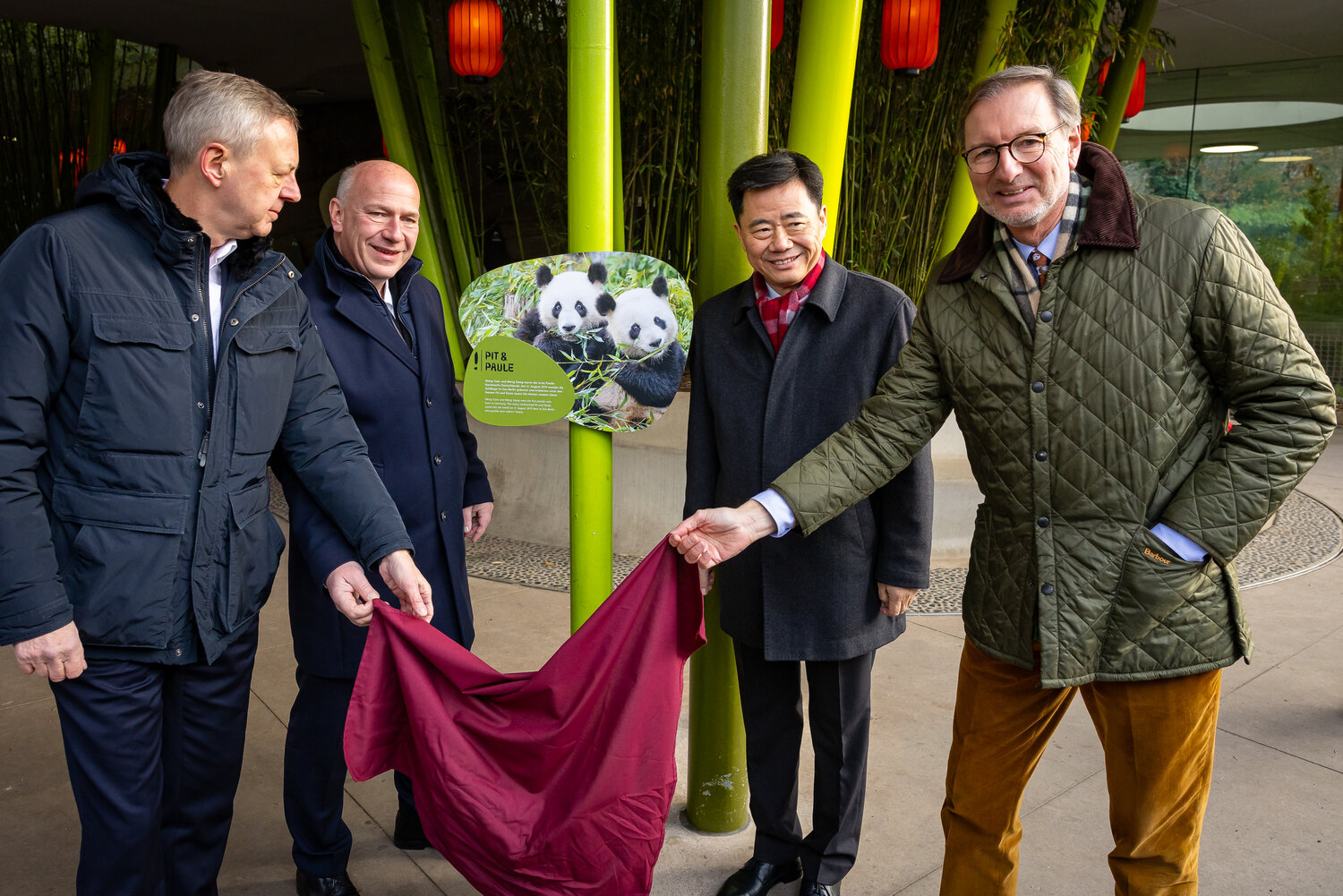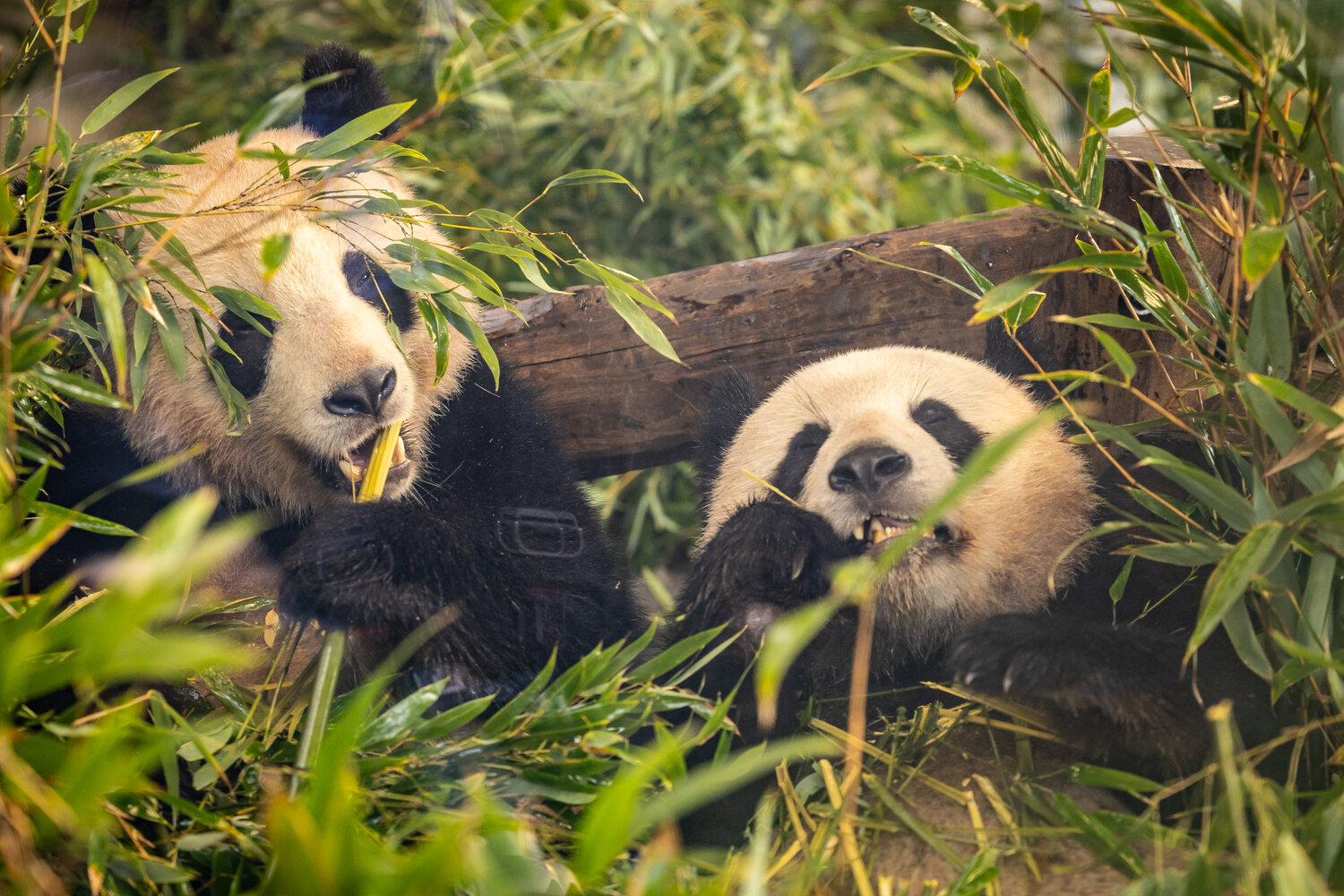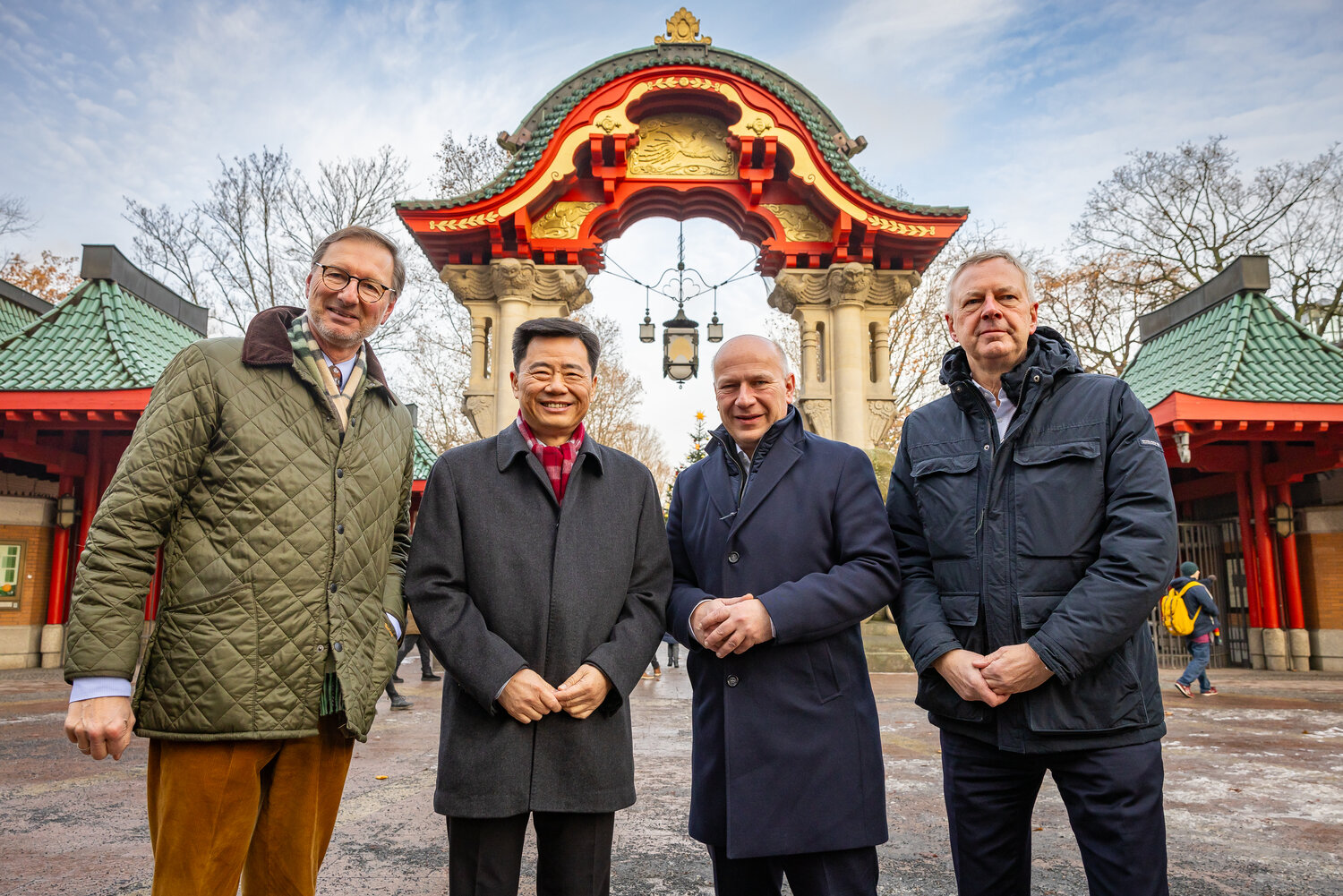Pit and Paule (also known as Meng Xiang and Meng Yuan) made history as the first panda cubs born in Germany. Over the past four years, they have captured the hearts of Berliners and international visitors. Now it is time for the twin brothers to head to their native homeland of China, but they will never be forgotten here in the German capital.
Today, His Excellency the Chinese Ambassador Wu Ken and Governing Mayor of Berlin Kai Wegner visited Zoo Berlin to say goodbye to Pit and Paule. Accompanied by Zoo and Tierpark Director Dr Andreas Knieriem and Frank Bruckmann, the chairman of the supervisory board of Zoologischer Garten Berlin AG, they unveiled a plaque commemorating Germany’s first panda cubs, ensuring the bears remain in the minds of visitors to Zoo Berlin’s Panda Garden for many years to come.
Mayor Wegner had this to say: “The time has come to bid farewell to the two pandas Pit and Paule, who have delighted Berliners and countless tourists over the past few years. The fact that the bears born in 2019 at Zoo Berlin have developed so well and are now ready to make their journey to China is a real triumph for the Zoo. The City of Berlin cares deeply about the conservation of threatened species, so I would like to thank all those involved in China and in Germany for everything they are doing to protect these animals.”
His Excellency Ambassador Wu said: “I am pleased to present this beautiful tribute to Germany’s first panda cubs here at Zoo Berlin today. This way, Meng Xiang and Meng Yuan will always have a place in Berlin as well as in our hearts. We hope that our tireless efforts to preserve the panda’s natural habitat and implement conservation programmes ensure that these majestic animals can survive and thrive. We would like to thank Zoo Berlin for its support with this enormous and important task, and we hope that German panda fans will visit the two bears in their new home in China in the future.”
“Efforts to save the giant panda have become a model for modern species conservation endeavours,” explained Knieriem. “Our Chinese colleagues have taught us a lot about the conservation breeding of giant pandas. Our shared passion for protecting threatened species and our joint research programmes have built bridges between our two countries.”
Bruckmann added: “The first ever birth of giant panda cubs in Germany was not only a triumph for the conservation of these threatened animals, it was also a significant moment for Zoo Berlin. As adorable ambassadors for their species, Pit and Paule will continue to promote awareness of animal conservation in the future. We are very proud that the bears will go down in Berlin history as Germany’s first ever panda cubs.”
The panda twins’ departure is now imminent: in mid-December, they will start their journey to the Chengdu Research Base of Giant Panda Breeding, where they will then go their separate ways. The exact date of the trip will not be communicated so as to ensure that transportation runs smoothly.
Giant panda rescue plan
The number of giant pandas in human care has doubled in the past decade as a result of extensive research. Pit and Paule are two of 698 giant pandas currently living in human care, which is around a quarter of the entire global population. According to the latest Giant Panda Survey, there are 1,864 giant pandas living in the wild in China. Giant pandas are therefore classified as “Vulnerable” on the IUCN Red List of Threatened Species. The giant panda rescue plan involves establishing successful conservation breeding programmes in order to build up a secure reserve population. That has now been achieved. The next step is to conduct further research into the best way to reintroduce pandas that have grown up in captivity into the wild, and to make the necessary preparations. Some initial attempts at reintroduction have already been successful, but the preservation and restoration of suitable habitats is just as important if these animals are to survive in the wild. The Giant Panda National Park project plays a central role in restoring and connecting up fragmented habitats. The park was established in 2020 and covers parts of Sichuan, Gansu and Shaanxi provinces. It incorporates around 70 nature reserves and has a surface area of more than 22,000 km².





